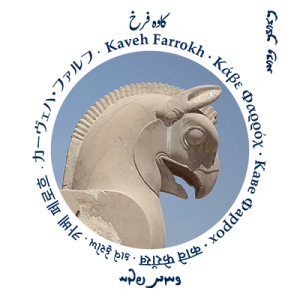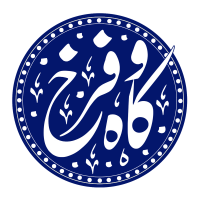The letter below has been sent to Parviz Khoupai by the PAAIA. The letter pertains to Dr. John Hennessy, the President of Stanford University who is responding to the PAAIA regarding the overtly racist and anti-Iranian remarks of Jeffrey Ullman, a professor emeritus at Stanford University.

Dr. Jeffrey Ullman, a Computer Science specialist at Stanford University, has not only engaged in open discrimination against Iranian students, he has also gone so far as to post racist and politically motivated comments in his website. Stanford university president Dr. John Hennessy had assured that the university rejects Ullman’s controversial stance.
Before reading the response of Stanford University President Dr. John Hennessy, readers may want to also consult the following article by The Stanford Daily (Monday, January 10th, 2011):
Professor comes under fire for alleged anti-Iranian e-mail
Note that ever since the exposure of his racist views and actions, Dr. Ullman has revised his website (Answers to All Questions Iranian).
=================================================================================
From: PAAIA <[email protected]>
Subject: Stanford University President Responds Directly to PAAIA Over Retired Professor’s Anti-Iranian Remarks
To: “Parviz Koupai” <xxxx>
Date: Friday, January 14, 2011, 1:08 PM
January 14, 2011, Washington, D.C. – Stanford University’s president, Dr. John Hennessy, today assured PAAIA that controversial remarks made by a retired faculty member does not reflect the university’s views or admission policies.
In recent weeks, a number of Iranian American organizations and individuals have expressed concern over remarks made in an email sent by Jeffrey Ullman, a professor emeritus at Stanford University, in response to an inquiry made by an Iranian student about admission to the graduate computer science program. Ullman directed the student to a page on his university-hosted website, “Answers to All Questions Iranian.” Ullman went on to express in his email that even if he were in a position to assist Iranian students with admission to the program, he would not do so unless there is a change in Iran’s policy towards Israel.
PAAIA and all Iranian Americans hold dear the value of freedom of expression. Although Ullman is certainly entitled to his personal opinion, we believe holding Iranian students responsible for the actions of the Iranian government are not only fundamentally misguided but contrary to the interests of the United States.
More importantly, PAAIA wanted to understand and clarify Stanford University’s position on the matter, as the vocal posturing among some in our community has unfortunately blurred the distinction between an alumnus faculty member’s personal views and the university’s position. If anything, the historical evidence is to the contrary. Large numbers of Iranian and Iranian American students have attended Stanford and many have gone on to excel in various fields. In particular, Stanford has been a magnet for Iranian students in technical fields. Newsweek reported in its August 9, 2008 issue that Stanford has become a favorite destination of Sharif University graduates. Several of whom achieved recognition by attaining highest marks on the PhD entrance exam for the Electric Engineering department.
Dr. Hennessy, a big supporter of international students including those from Iran, has been quoted multiple times stating that great universities are made by attracting the best faculty and students from around the world. He has gone on to say that the economic vitality of the United States is enhanced by immigration policies which allow talented and educated immigrants to remain in the U.S.
To clarify the matter, PAAIA reached out to Mr. Hamid Moghadam, a Trustee of both PAAIA and Stanford University. Mr. Moghadam in turn reached out to President Hennessy who issued the following statement to PAAIA:
“Stanford University has heard the concerns raised by some members of the Iranian American community regarding the personal remarks of a retired faculty member. Dr. Ullman is an emeritus faculty member and no longer on active duty. His opinions do not reflect the opinions of the university, nor does he have any involvement in the admissions process or admissions policies.
Stanford does not discriminate in its admissions. The university seeks to admit the very best students from throughout the world into its programs, as long as they meet the visa requirements of this country. The university-at-large, as well as the Computer Science Department specifically, has enrolled many distinguished students from Iran. We also have a number of faculty members of Iranian descent, and are proud to say that an Iranian American presently serves on our Board of Trustees.
Stanford does not censor the views expressed by students or faculty on personal Web pages, whether or not they are accessed through a Stanford-based URL. Personal Web pages are not considered part of Stanford University’s institutional Web site. As with personal e-mail, they are not created by the university and their content has no official institutional endorsement.”
PAAIA would like to express its gratitude to Dr. Hennessy for clarifying Stanford University’s position on this matter.



